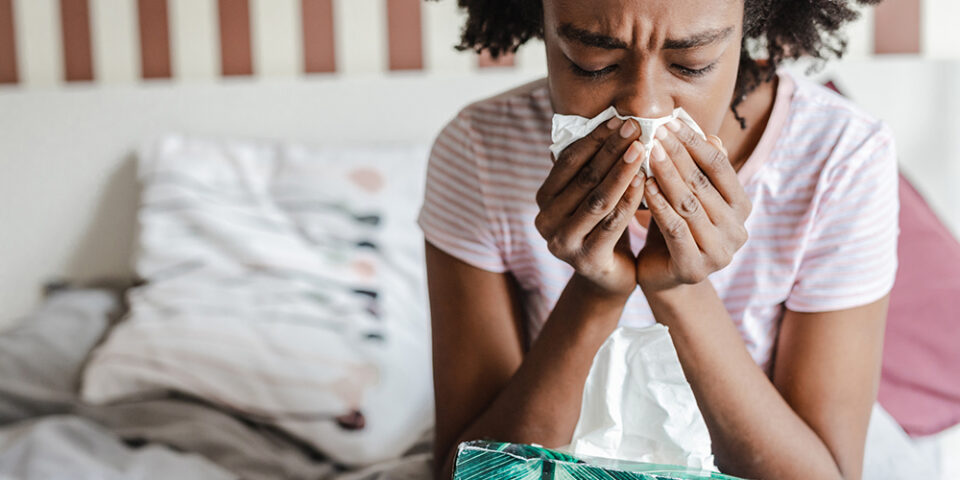How do antivirals help with the flu?
Influenza, an infection of the respiratory system (the nose, throat and lungs), is a common cause for a miserable illness. The flu can cause serious complications like pneumonia, and many medical providers rely on antivirals to help fight the infection. How do antivirals help with the flu? Avia Reaves, FNP, answered this question – and offered tips for taking on the flu at home.
How do antivirals help with the flu?
“Antiviral medications work by reducing how much of the virus reproduces within your body,” said Reaves. “Studies show that antiviral drugs work best when started within two days of getting sick.”
This can be tricky, as often the earliest symptoms of the flu, like fever, cough, sore throat and stuffy nose, are also common symptoms of a cold and a number of other illnesses. That’s one reason it’s so important to see a doctor if you start to experience significant symptoms, since antivirals are only available by prescription.
What is the best way to treat flu symptoms at home?
“The CDC recommends that you stay home for at least 24 hours after your fever is gone,” said Reaves. “This means that your fever doesn’t return even after you are no longer using fever-reducing medicine like Tylenol.”
Since you may be infectious for a week after you become sick, and those with weak immune systems might be contagious for even longer, you’ll want to stay away from others as much as possible during that time. If you need to interact with others, make sure you wash your hands well and often, wear a mask and keep your distance.
Should you go to the doctor if you have the flu?
“In order to get antivirals when they will still be most effective, try to see a doctor within two days of the start of your symptoms,” said Reaves. “Otherwise, it’s really a waiting game. You’ll be able to care for yourself at home, but there are some signs that you need more significant medical care to help you recover.”
Symptoms of potential flu complications, like pneumonia, include:
- Difficulty breathing or shortness of breath
- Chest pain
- Confusion
- Severe fatigue
- Seizures
- Worsening of existing chronic medical conditions
If you experience any of these symptoms, seek medical care immediately.
How can you avoid getting the flu?
“I really recommend getting your flu shot each year,” said Reaves. “The CDC has significant research showing that flu vaccines help to reduce the risk of flu illness by 40–60%. Studies also show that even if you do get sick, you’re far less likely to experience severe complications or end up hospitalized if you’ve had your flu shot.”
Other ways to avoid getting sick with the flu are avoiding close contact with individuals who are sick, covering your mouth and nose with a tissue when you cough or sneeze, washing your hands with soap and water, cleaning and disinfecting surfaces and objects (like doorknobs) that might be contaminated and wearing a mask.
Find the care you need, close to home
Our primary care physicians provide well visits and everyday care when you need it with compassion and expertise.
Find Primary Care Near You

